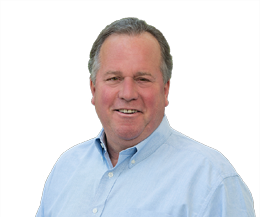Viewpoints: Current California law doesn’t allow us to address climate-caused insurance crisis
By Bill Dodd -- Special to The Sacramento Bee, January 22, 2024
Insurance isn’t fun or interesting or even easy to understand, but it is essential. And now it’s at risk.
We don’t have a robust insurance market in California. It’s quite the opposite: More than five years of destructive, climate-driven wildfires have triggered billions of dollars in claims, causing insurers to leave in droves. Those that remain are refusing to renew policies, especially in fire-prone wildland-urban interface areas.
The situation has led to diminished private-sector competition, and only expensive options remain in some communities. The state’s insurer of last resort — known as the FAIR Plan — and non-admitted carriers that are not approved by the state are simply cost-prohibitive.
The effects are far-reaching. The insurance crisis is impacting property values and the ability for homeowners to refinance or sell their homes. In short, it’s a disaster, and a ticking time bomb that threatens the broader economy. Clearly, the status quo isn’t working.
Reducing risk
We have two primary tools at our disposal. One is to reduce the risk of wildfire. Lowering the risk lowers the pressure on ever-higher insurance premiums. Reducing risk doesn’t mean that insurers should get a blank check or give up important consumer protections. California has taken substantial actions in the last five years to reduce wildfire risks. I have authored or co-authored dozens of bills dealing with insurance and wildfire issues.
We have tightened regulations to help prevent fires from downed lines. We promoted better vegetation management and more fuels reduction through firebreaks and defensible space inspections. And we have addressed rapid response through cameras, weather forecasting, prepositioning firefighters and mutual aid. All this reduces risks.
We need to continue building on progress and being innovative. And we need each and every homeowner to take risk reduction seriously, and as a smart investment.
Modernizing rate setting
Our second tool is how California sets insurance rates. This remains a work in progress.
We still have a long way to go to get to where we need to be, especially in terms of the time it takes to review rate filings and the difficulty of existing processes.
That’s what Insurance Commissioner Ricardo Lara is trying to do with his Sustainable Insurance Strategy, a phalanx of regulations and executive actions (including the pace of rate filing reviews, catastrophic modeling and reinsurance costs for ratemaking) all to help policyholders by stabilizing the insurance market. As specific regulations emerge in the coming months, they will be vetted to ensure they are meaningful and benefit consumers.
California voters 35 years ago, by passing Proposition 103, established today’s rate-setting process, one that was intended to keep premiums from being set at unjustified levels. It was promoted as a way to ensure that insurance is available and affordable for all. But it was designed before the exploding risks caused by climate change and the recent record wildfire seasons or massive spikes in inflation.
It’s a tough pill to swallow to pay more in premiums to avoid even greater premiums or unavailability of insurance. But that may be part of the solution. In fact, all of these things could be combined to help maintain availability of insurance.
I admittedly didn’t set out to be an expert in insurance regulation and reform when I was first elected to the Legislature in 2014. My constituents would probably be more interested in learning about reverse osmosis water filtration — which I did before serving in public office. But this insurance problem requires a comprehensive solutions that are executed thoughtfully to avoid negative consumer impacts or frivolous rates.
This is something I take seriously, as does the insurance commissioner and Gov. Gavin Newsom.
Together, we have a chance to make real progress. The more we lower risks and tailor insurance rates to cover those risks while protecting consumers, California can adapt to our changing future.
Senator Bill Dodd represents the 3rd Senate District, which includes all or portions of Napa, Solano, Yolo, Sonoma, Contra Costa and Sacramento counties.
Read more at: https://www.sacbee.com/opinion/op-ed/article284363544.html#storylink=cpy

